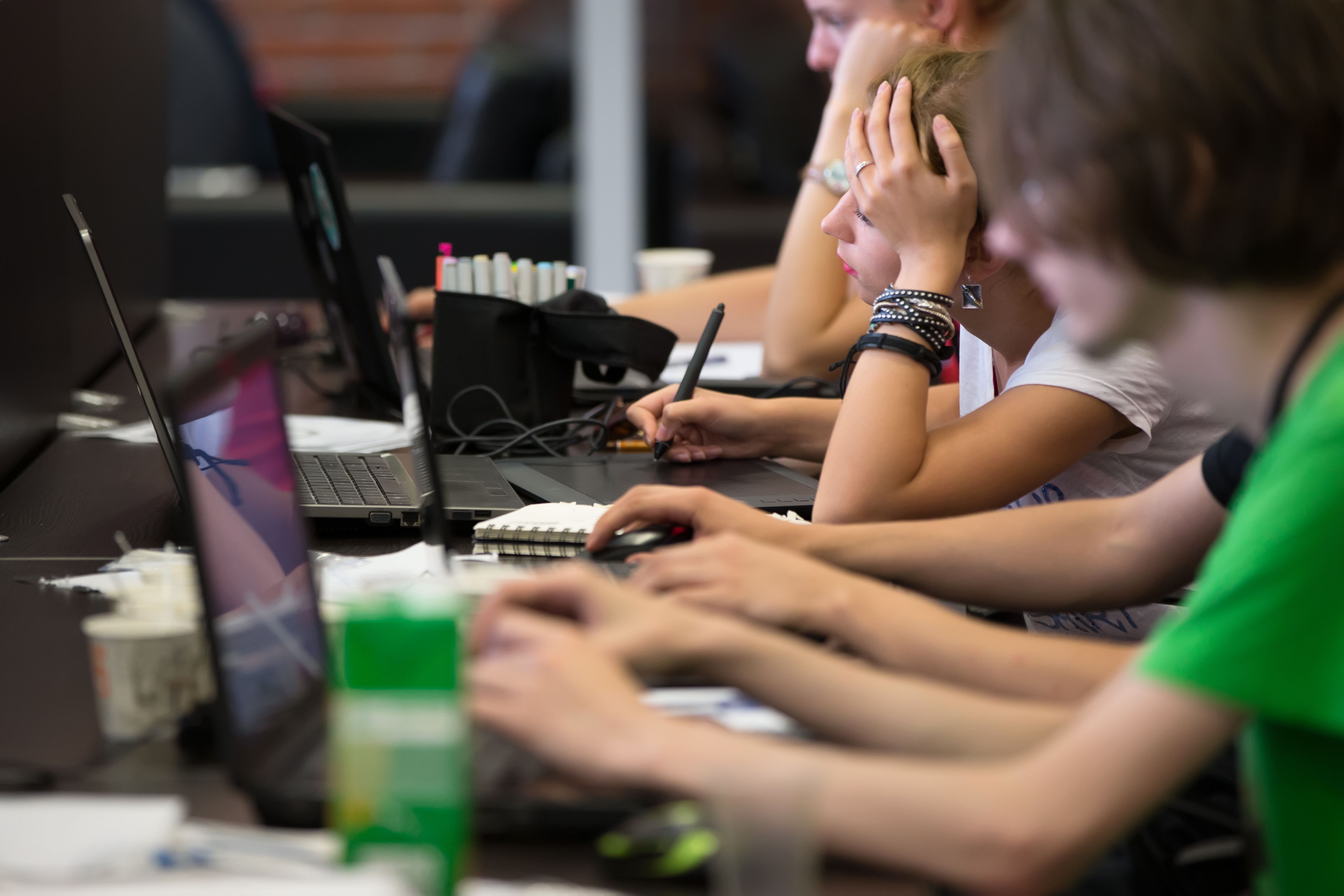تمثل الصحافة السياسية الوسيط الذي يبسط المعطيات للمواطنين ويضعهم في السياق؛ ليسهل عليهم المساهمة في تحديد مصيرهم السياسي وتشكيل آرائهم.
وتوجد الصحافة الرياضية في المرتبة نفسها لاضطلاعها بدورٍ أساسي في عملية تلبية الحاجات النفسية الترفيهية للجماهير من خلال تقديم المعلومات والأخبار بشأن القطاع الرياضي الذي بات من أولويات الكثيرين ولم يعد يُنظر إليها بوصفها موضوعًا ثانويًّا.
ومن هنا يُمكن أن نقيس ونلمس درجة الحساسية التي تُحيط بمهمة الصّحفي الرياضي في أداء رسالته المهنية والمهمات المنوطة به في هذا الميدان.
السيكولوجية العاطفية للجمهور
يقول الباحث الإنجليزي ب. أديلمان في سياق سابق عن راهننا: "لقد حلَّت السياسة محلّ الدين، ولكنها استعارت منها الخصائص النفسية نفسها، بمعنى آخر أصبحت السياسة دينا مُعلمَنا، وكما في الدين فقد أصبح البشر عبيد تصوراتهم الخاصة بالذات"(1)، وإذا أمكننا تكييف هذه المقولة مع أهمية الرياضة في حياة الكثيرين، فيُمكن تصنيفها في خانة "المُقدّس" و"الثابت" لدى الجماهير. يفسر ذلك تعاطي الجمهور مع ما يرتبط بالرياضة بمنسوب عالٍ من التعصب، والتمسك بتصوراتهم الخاصة بشأنها والانخراط التام بتفاصيلها.
وتدعم ذلك دراسة استبيانية أنجزها مؤشر "نيلسن سبورتس"؛ إذ وقف على أن 63 بالمئة من الجماهير الرياضية تشعر بعلاقة عاطفية ذات منسوب مرتفع مع أنديتها المُفضّلة.
ويجد الصحفيون أنفسهم أمام دور حيوي وحساس بخصوص التغطية الرياضية بصفة عامة؛ إذ إن الخطأ أو سوء التقدير في أثناء التغطية الرياضية يجعلهم عرضة للتصادم مع الجمهور الذي ينتفض إذا ما جرى المساس باختياراته وانتماءاته الرياضية.
في مواجهة النَّزعة العاطفية
تستلزم أدبيات الصحافة، أن تتضمن المُمارسة الإعلامية عناصر الموضوعية والحياد والأمانة، ولكن التحلي بهذه الأدوات في معالجة الشأن الرياضي قد لا يقي الصحفي من استثارة الجماهير وإيقاظ غضبها في بعض الأحيان، لأن أي خبر أو رأي أو معطى "سلبي" يجري تقديمه وتناوله عن نادٍ أو لاعب مُعيَّن، حتى لو كان حقيقيا، فهو مُعرّضٌ ليُقابَلَ بموجة استهجان من الجماهير "العاشقة" أو أن يضع الصحفي في مواجهة مع الانتقادات والاتهامات "بالانتقائية" وخِدمة أجندات أخرى.
يواجه الصحفي الرياضي مُهمةً غير يسيرة في تبليغ الوقائع ونقل المعطيات؛ ليتخلص من هذا "المأزق" بأقل الأضرار وأخفها. ويعود السبب إلى صعوبة زعزعة يقينيات الجماهير بشأن اختياراتها وانتماءاتها إزاء الأندية واللاعبين المُفضّلين.
تستلزم أدبيات الصحافة، أن تتضمن المُمارسة الإعلامية عناصر الموضوعية والحياد والأمانة، ولكن التحلي بهذه الأدوات في معالجة الشأن الرياضي قد لا يقي الصحفي من استثارة الجماهير وإيقاظ غضبها في بعض الأحيان، لأن أي خبر أو رأي أو معطى "سلبي" يجري تقديمه وتناوله عن نادٍ أو لاعب مُعيَّن.
وتناول عالم الاجتماع الفرنسي غوستاف لوبون الحديث عن خصائص الجماهير بصفة عامة، وتتمثل في خضوعها للعواطف بشكل يُمكن أن يتعارض مع الصورة الحقيقية للواقع. وكان تركيزه بصفته عالم نفس اجتماعي ينصبُّ على جماهير القادة والأيديولوجيات السياسية والفكرية، وجاءت الجماهير الرياضية لتتحلَّى بالسِّمات نفسها التي ألقى عليها لوبون الضوء.
وتبلغ أحيانًا العلاقة التي تربط الجماهير الرياضية بأنديتها ولاعبيها المفضلين درجةً من التّماهي المفرط حدّ التداخل؛ فهؤلاء يشعرون أن هوياتهم وكذلك قيمتهم الذاتية تتأسّس على منسوب الولاء لانتماءاتهم في الرياضة، ونوعية النتائج التي تُحقّقها هذه الأندية واللاعبون على أرض الملعب. ومن ثَم تُصبح أرضية الملعب ضابطا أساسيا لمزاج الجماهير ومُتحكما في حالاتها النفسية.
ويرى لوبون أن أفراد المجموعة الواحدة التي تربط بينها مبادئ وقضايا مشتركة، يؤدي بها هذا التكتل والاجتماع حضوريا أو عن بعد، إلى نوع من انطماس الشخصية الواعية لديها ومُقابل ذلك تحضر وتطغى النزعة العاطفية؛ التي لا تترك حيزا كبيرا للمنطق كي يشتغل ويتحرك.
حقل ألغام
يبدو الصحفي الرياضي كأنه يسير على حقل ألغام في خضم اشتغاله وأداء مهماته المهنية في التغطية الرياضية؛ لأن هامش الخطأ ينتفي وتُصبح الدِّقّة من أهم المتطلبات، أما نقيض ذلك فقد يُعرِّضه لموجات وحملات مضادة غاضبة من الجماهير الرياضية؛ لأن الجماهير في حالة تأهب دائم لمناصرة اختياراتها وانتماءاتها، حتى لو قدّم الإعلامي معطيات صحيحة ولكن حظّه أنها تنطوي على جوانب سلبية متعلقة بالنادي أو اللاعب أو الطرف الذي تعشقه.
يعلق الكاتب الأوروغوياني إدواردو غاليانو في هذا السياق، في كتابه "كرة القدم بين الشمس والظل": "كرة القدم صورة مجازية للحرب، ويمكن أن تتحول أحيانا إلى حرب حقيقية؛ فالتعصب الكروي فـي زماننا احتل الموقع الذي كان يقتصر فـي السابق على الحماسة الدينية، والعاطفة الوطنية والهياج السياسي"(2).
وفي كثير من الأحيان، تجد الجماهير الرياضية نفسها متشبعة بـ"نظرية المؤامرة"، ولعلّ هذا الاتهام الذي يوجه للصحفيين في أغلب الأحيان يحمل في جوانب كثيرة منه نزعة عاطفية، تحضر فيها الذاتية ويغيب عنها المنطق؛ لأن مناصري نادٍ مُعيَّن يُشهرون هذا الحُكم الجاهز المتعلق "بالمؤامرة"، عند أول تناول إعلامي سلبي لمعطى يرتبط بفريقهم، وإن كان منطقيًّا ومُدجَّجًا بحجج وبراهين.
يبدو الصحفي الرياضي كأنه يسير على حقل ألغام في خضم اشتغاله وأداء مهماته المهنية في التغطية الرياضية؛ لأن هامش الخطأ ينتفي وتُصبح الدِّقّة من أهم المتطلبات، أما نقيض ذلك فقد يُعرِّضه لموجات وحملات مضادة غاضبة من الجماهير الرياضية.
ولا يكتسي هذا الحُكم بما هو مُطلق؛ فمن حق الجماهير الرياضية "مُحاكمة" الصحفي الرياضي أخلاقيًّا، إذا ما بدا بما لا يدع مجالا للشك ووفق معطيات موضوعية اعتماده الانتقائية في تغطية مستجدات نادٍ أو لاعب معين، بإظهار الأخبار السلبية والتغاضي عمدا عما هو إيجابي.
يقول يوسف بصور، صحفي مغربي بجريدة "الأحداث المغربية" تعليقا على الموضوع، في تصريح لـ"مجلة الصحافة": "من الصعب إن لم يكن من المستحيل تفادي التصادم مع النزعة العاطفية للجماهير، التي لا تتقبل أي انتقاد يمس فريقها المفضل، بل وتراه في كثير من الأحيان استهدافا مدفوع الأجر".
ويرى "بصور" أن من الواجب التسلُّح الصحفي الرياضي بالدقة في أداء رسالته المهنية، بقوله: "ينبغي على الصحفي تحري الدقة إلى أقصى الحدود، من خلال الحرص على نقل الأخبار إيجابية كانت أم سلبية من المصادر الرسمية، ولا سيما التي تقبل نشر أسمائها بدل ما يسمى (تجاوزا) بالمصادر المطلعة".
"كرة القدم صورة مجازية للحرب، ويمكن أن تتحول أحيانا إلى حرب حقيقية؛ فالتعصب الكروي فـي زماننا احتل الموقع الذي كان يقتصر فـي السابق على الحماسة الدينية، والعاطفة الوطنية والهياج السياسي".
بين المهنية والرقابة الذاتية
يُطوَّقُ الصحفي الرياضي أمام هذا الضغط غير المُباشر، المُسلَّط عليه من الجماهير الرياضية، بحتمية الاختيار بين المنهج "البراغماتي" أو"المباشر" في التعاطي الإعلامي مع الشأن الرياضي، أو اعتماد سياسة دبلوماسية تحتمّها الرقابة الذاتية، خشية التعرض لحملات سُخط من الجماهير. ويحتكم الصحفي في آخر المطاف إلى عدة معايير تشمل قابليته للصمود أمام الضغط، وقناعاته الشخصية كي يستقر على أحد الخيارين.
مبادرة "play the game"، التي تهتم بتعزيز الديمقراطية وصون حُرية التعبير في عالم الرياضة نوقشت فيها الكُلفة التي يمكن أن يؤديها الصحفي في سبيل إنتاج أعمال إعلامية تُلقي الضوء على ظواهر وأحداث واقعية، رغم أنها قد تُلهب غضب الجماهير بما لا يتوافق مع أهوائها.
الصحفي الرياضي بقناة "TV4" السويدية، أولوف لوند، يُقرُّ بالتوجُّس الذي يتملَّك كثيرا من الصحفيين إزاء إمكانية الاشتغال على موضوعات تنتقد ممارسات محسوبة على الجماهير أو تُظهرها، بقوله: "لقد رأينا كثيرا من الجماهير تتعارك في الملاعب، ولكن الصحفيين لا يحبذون الكتابة عن ذلك؛ لأنهم يعلمون أن الأنصار سيتعقّبونهم ويهاجمونهم في مواقع التواصل الاجتماعي، أما إذا كتبت في موضوعات تُريدها الجماهير، فإنها ستُصفّق لك".
إن الإضافة الملموسة أو التأثير الذي يُمكن أن يُقدِّمه الإعلام الرياضي يتمثل في التحلّي بالجرأة ومعالجة جوانب قد يصعب تقبلها من الجماهير شريطة أن تكون صائبة ومنطقية وتساعد على التقويم والإصلاح، كما يدعم هذا القول لوند: "في بعض الأحيان نحتاج إلى كتابة قصص وأخبار غير خالية من المخاطر رغم أننا لا نريد حقا الكتابة عنها".
ورغم أن نزوع الصحفي الرياضي إلى نهج لغة مباشرة يتحلى من خلالها بالجرأة، فإن ذلك يُعرّضه لضغوطات وحملات متسمة بالغضب من الجماهير الرياضية، وهو ملزم بهذا الاختيار ومُطالب في الوقت نفسه بالتعامل مع هذا الضغط ومجاراته، حتى يغدو لرسالته الإعلامية مغزى ملموس وتأثير قد يُغيِّر المشهد إلى الأفضل.
المراجع
1) مُقدمة كتاب "سيكولوجية الجماهير" لـغوستاف لوبون
2) كتاب "كرة القدم بين الشمس والظل" لـإدواردو غاليانو




















![Palestinian journalists attempt to connect to the internet using their phones in Rafah on the southern Gaza Strip. [Said Khatib/AFP]](/sites/default/files/ajr/2025/34962UB-highres-1705225575%20Large.jpeg)




















